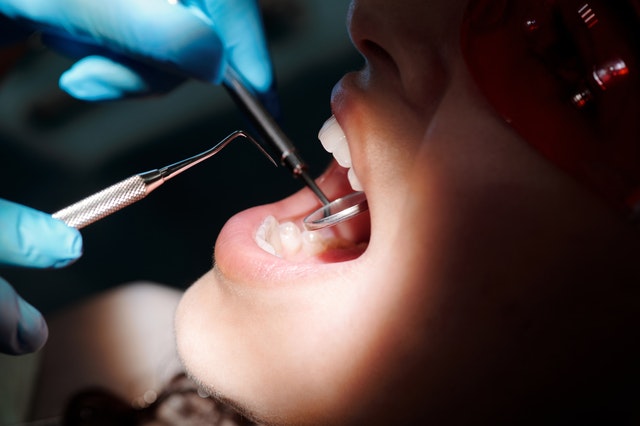Regular visits to your dentist are vital to maintaining good oral health. The general recommendation within the dental community is that you should see your dentist every six months, but the frequency of your visits may differ based on your dental issues. If something is wrong, your body will often display symptoms. Here are seven signs that you need to make an appointment to see your dentist ahead of scheduleꓽ
Pain or discomfort
Pain is the most obvious sign that something is wrong in your mouth. If you are experiencing pain, it is often a sign that there is an infection, irritation, or injury of some kind—for example, broken or fractured teeth. Repetitive movements such as grinding teeth can also cause pain. Toothaches can be sharp and throbbing and can also cause fever and headaches. While over-the-counter painkillers may provide temporary relief, they will not solve the underlying issue. Visit your dentist, who will do an examination to determine the source of the pain and will provide proper medical care.
Lingering bad breath
Other than being extremely embarrassing, persistent bad breath could be a sign that there is a deeper issue. Persistent bad breath is often a symptom of periodontal disease. Periodontal disease—also called gum disease—is an infection of the soft tissue, which can cause damage to your mouth. If left untreated, periodontal disease can damage the jawbone, which anchors teeth in place. If you notice bad breath or an unpleasant taste in your mouth that will not go away despite brushing and flossing, you need to seek immediate attention from your dentist.
Bleeding gums
Your gums require as much care and attention as your teeth. Blood after brushing or flossing is not normal and should be reported to your dentist immediately. Bleeding gums is another common symptom of periodontal disease. If you regularly experience bleeding gums, you should visit your dental clinic for an examination.
Changes in the appearance of teeth
Noticeable changes in the way your teeth look could also be a sign that you need to make an emergency visit to your dental clinic. Loose or shifting teeth could mean that your jawbone is weak and can no longer secure teeth in place. A change in the color of your teeth is also a sign that they need urgent attention and care. A tooth going from yellow to brown or almost black means there is possible decay.
Difficulty chewing or swallowing
Struggling to eat or swallow is not normal and should not be ignored. This may be due to misaligned temporomandibular joints. The joints—which are located on either side of your face just in front of your ears—connect your lower jaw to your skull. They help the jaw to move when you chew or speak. When they become misaligned, it can cause teeth grinding and limited jaw movement, making it difficult to chew and sometimes speak. This not only affects jaw movement but can also have an impact on your overall health, as it can prevent you from receiving proper nutrition. If you are experiencing problems with chewing and swallowing, be sure to stick to soft, manageable foods or liquids and seek help from your dentist as soon as possible.
Swelling and Sores
Mouth sores happen more often than you think. These sores can happen from something simple such as accidentally biting the tongue or cheek while eating. Common canker sores are usually resolved on their own after a week; if you have sores that are still there after a week, then you need to see a dentist for an examination. Sores can be a sign of a fungal infection called thrush or candidiasis. Thrush appears as white sores on the roof of your mouth, tongue, and inside the cheek. Tooth abscesses are also a sign of a bacterial infection in the mouth. An abscess is a pocket of pus that forms in the mouth from bacteria. If you notice an abscess, you must seek medical attention immediately. Tooth abscesses can cause secondary infections in other parts of the body that can become life-threatening.
Damage to previous dental work
If your previous dental work gets damaged, it’s important to see your dentist as soon as possible. Dental work such as fillings protect already damaged teeth from infections. If a filling becomes chipped or dislodged, then it may cause bacteria to enter the tooth, which could lead to further issues such as infections, pain, and sensitivity.
Emergency dentist in Klamath Falls
If you are experiencing any of the issues above, there’s no reason you should continue to suffer—contact Klamath Smiles. Ignoring these signs can lead to costly dental bills later. Our commitment is to our patients and providing the highest quality dentistry services. We help our clients to achieve healthy, beautiful smiles that last a lifetime. Call or visit our website to book an oral examination appointment today.
